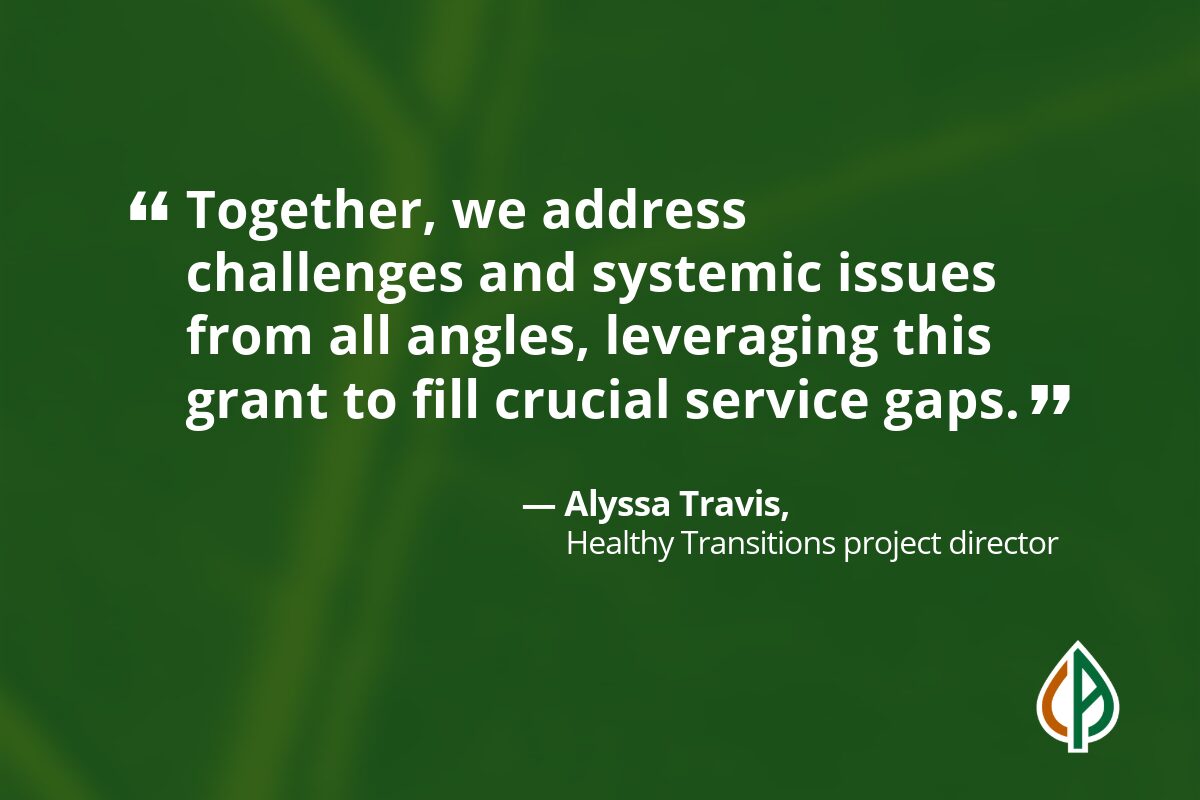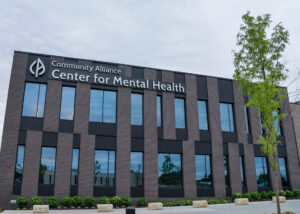Community Alliance’s new program helps young adults transition to independent adulthood

Community Alliance is committed to comprehensively serving our community’s needs. While historically focused on adult services, we are expanding our reach with the support of SAMHSA’s Healthy Transitions grant. This five-year grant enables us to address the transitional needs of youth who are moving from adolescent to adult mental health or substance use services.
The Healthy Transitions program aims to improve and expand access to appropriate services and supports for youth and young adults, ages 16-25, who either have, or are at risk of developing, serious mental health conditions.
“We’ve been hearing for years that this population faces gaps in services,” said Alyssa Travis, Healthy Transitions’ project director. “Based on those conversations with partner organizations, we knew this grant could help fill those gaps and allow us to better serve our community.”
Coordinating care
Care coordination is a major component of the program. Many youth and families receiving adolescent mental health or substance use services struggle to navigate care options for adults. Healthy Transitions’ care coordination is the bridge that brings the pieces together.
“A lot of programs have case management, but our care coordination takes this a step further,” said Todd Reckling, director of Community Alliance’s Integrated Health Services. “We address barriers to help clients understand, access and utilize resources.”
The team’s care coordinators, who are trained peers with lived experience, address barriers to services by walking alongside individuals on their pathway to sustained independence. For example, if a client doesn’t have a vehicle, a care coordinator would teach them how to read the bus schedule, how to ride the bus and how to navigate routes to the services they need.
Filling community gaps
Healthy Transitions fosters collaboration across Community Alliance’s services as well as with our external partners.
To carry out this work, we are working with a leadership team consisting of representatives from a variety of agencies serving this transitional population, including Region 6 Behavioral Healthcare, Nebraska Department of Health and Human Services, Douglas and Sarpy counties’ probation offices, Omaha Police Department co-responders, Families Inspiring Families and others.
“Together, we address challenges and systemic issues from all angles, leveraging this grant to fill crucial service gaps,” Alyssa said.
Additionally, Healthy Transitions connects with community partners, like other nonprofits and school districts, to prevent duplication of services and maximize available resources. By building this network, we make sure our team, our clients and their families know what resources are available.
“We’ve had very intentional conversations with the Healthy Transitions leadership team about how to fill care gaps without competing or duplicating services,” Todd said. “Our focus is on connecting clients with the right resources, whether internal or external, to meet their needs.”
Meeting people where they are
Understanding clients’ circumstances is paramount. By meeting individuals where they are, our team gains insights into their daily challenges and tailors support accordingly.
We extend our care coordination to encompass entire families, recognizing the interconnectedness of mental health within family dynamics and living situations. If a parent’s mental illness or substance use is negatively impacting their child’s behaviors and needs, we can connect them to internal or external services, supporting the whole family system.
Early success
Since its launch in January 2024, the Healthy Transitions program has already assisted 23 young adults who are working toward independent living.
For more information about the program, contact Community Alliance or visit us during walk-in hours.



